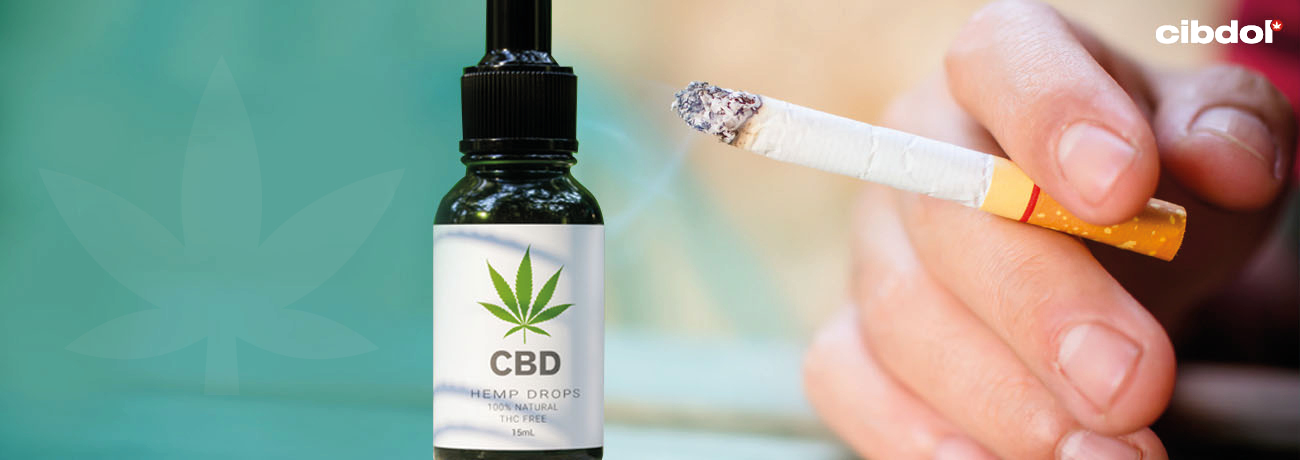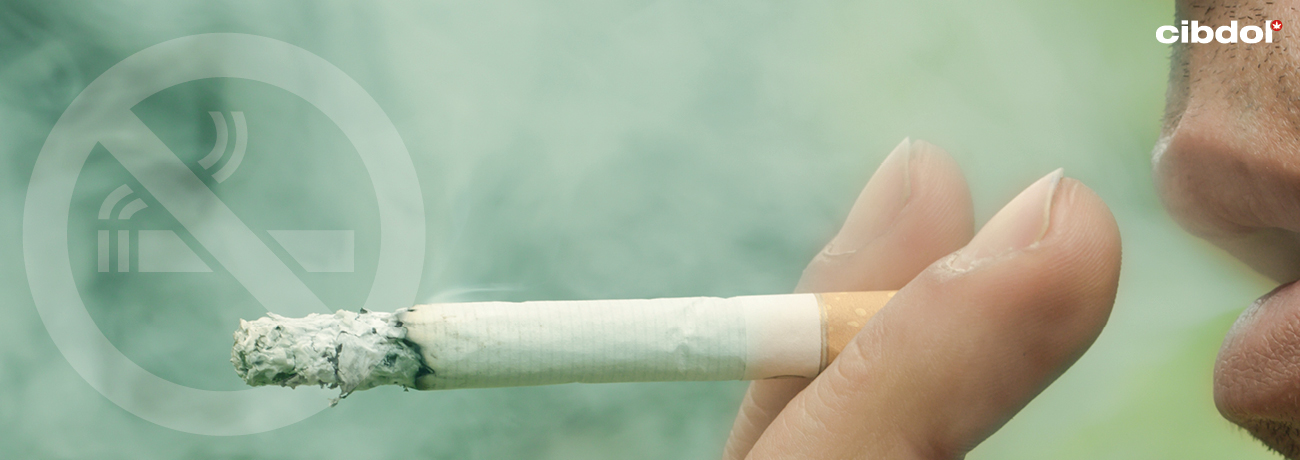Can I Mix CBD With Nicotine?

Nowadays, taking CBD as a supplement is a steady part of many people’s lifestyle. However, before making this leap, they often have a few questions to ask. Smokers often ask us if they can safely take CBD while consuming nicotine throughout the day. Keep reading to find out the answer.
Can you take CBD if you smoke?
People smoke for several reasons. Some users love the comforting and lightly stimulating properties of nicotine; others value the ritual of rolling a cigarette or rely on smoking to ease the stress of daily life. Of course, nicotine can also be delivered through transdermal patches, gum, and other methods.
As everyone knows, smoking comes with a long list of health risks. Not only can the substance be as addictive as heroin or cocaine, but it also damages the cardiovascular system, lung tissue, oral health, and increases the risk of many lethal chronic diseases.
However, some users struggle to give nicotine up, despite its damaging effects. On the other hand, many smokers are turning to CBD as a daily supplement to help in other areas of their life. After all, early research suggests the cannabinoid might be useful in a whole host of scenarios.
Some nicotine users are hesitant to try CBD, in part because they think it might interact negatively with their frequent nicotine exposure. Currently, no evidence exists to suggest CBD and nicotine interact in a negative fashion.
In contrast, the physiological effects of CBD[1] could—hypothetically—offer some protection against the damaging effects of smoking. However, no evidence exists to prove this either. Realistically, the damaging effects of smoking should far outweigh any concerns over taking nicotine and CBD simultaneously.
The bottom line: Smokers and nicotine users can safely consume CBD products such as oils and capsules in the same way as non-users. Simply follow the directions of your chosen product.
Could CBD help people stop smoking?

On a slightly different but still highly relevant note, smokers may be interested to know that the cannabinoid might help them kick their habit. Early research has demonstrated CBD’s promise in combating addictive behaviour. A review[2] published in the journal Neurotherapeutics suggests the cannabinoid might be beneficial for a condition as serious as opioid abuse.
More specifically, a 2013 paper[3] published in Addictive Behaviors documents CBD’s potential in reducing cigarette consumption. The researchers launched the study due to the suspected role of the endocannabinoid system in nicotine addiction.
The randomised double-blind placebo-controlled trial involved a total of 24 smokers. Half of the cohort received a CBD inhaler for one week, and the other half received a placebo. The researchers instructed both groups to use the inhaler when they felt the need to smoke. Impressively, the group that received CBD reported a 40% reduction in the number of cigarettes smoked during the treatment.
Of course, the satisfaction of inhaling something may have contributed to the success here. However, it raises the possibility that taking CBD in any form might help to curb the urge.
[1] Borges, R. S., & da Silva, A. B. F. (2017). Cannabidiol as an Antioxidant. ScienceDirect. https://www.sciencedirect.com/science/article/pii/B9780128007563000934 [Source]
[2] Hurd, Y. L., Yoon, M., Manini, A. F., Hernandez, S., Olmedo, R., Ostman, M., & Jutras-Aswad, D. (2015). Early Phase in the Development of Cannabidiol as a Treatment for Addiction: Opioid Relapse Takes Initial Center Stage. Neurotherapeutics. https://link.springer.com/article/10.1007/s13311-015-0373-7 [Source]
[3] Morgan, C. J. A., Das, R. K., Joye, A., Curran, H. V., & Kamboj, S. K. (2013). Cannabidiol reduces cigarette consumption in tobacco smokers: Preliminary findings. ScienceDirect. https://www.sciencedirect.com/science/article/abs/pii/S030646031300083X [Source]












